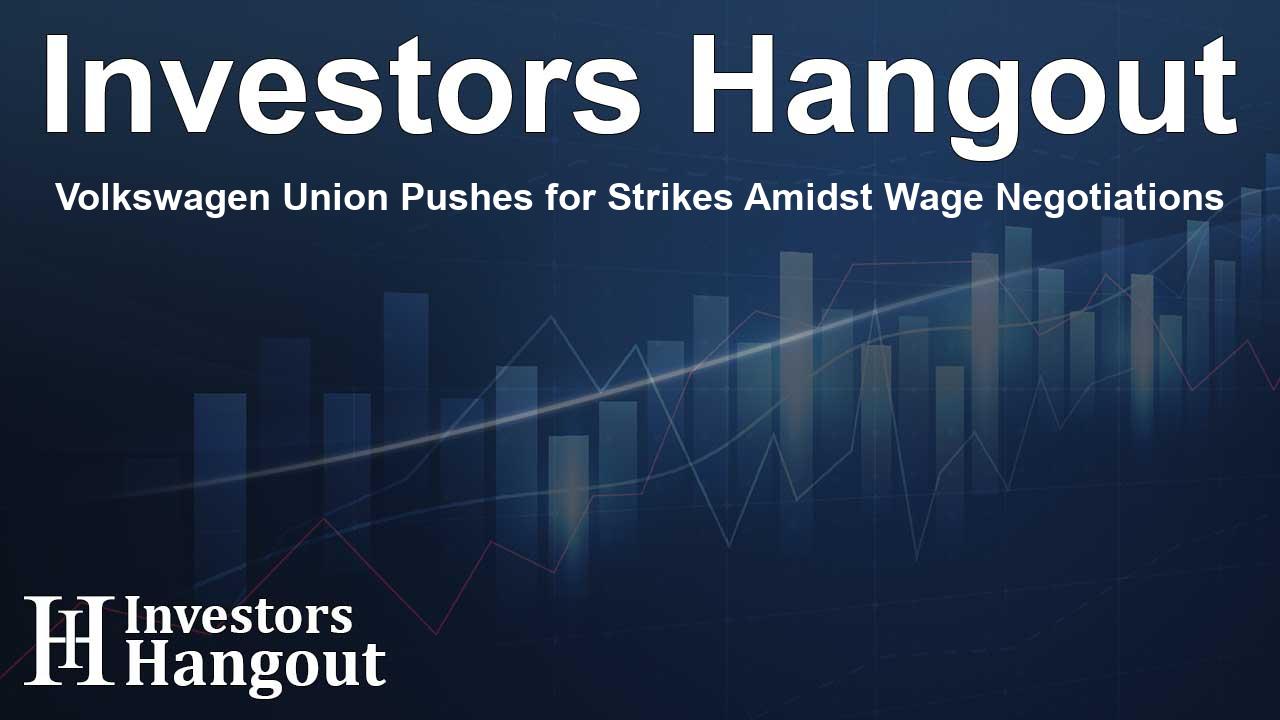Volkswagen Union Pushes for Strikes Amidst Wage Negotiations

Volkswagen Union Advocates for Strikes
Volkswagen, one of the major players in the automotive industry, is facing a challenging period as wage talks stall. The union representing workers has declared its intention to recommend strikes beginning December 1. This decision comes after management and the union struggled to find a consensus regarding worker compensation and potential factory closures.
Concerns Over Factory Closures
The ongoing negotiations have raised serious concerns among employees. VW management has not dismissed the idea of significant factory closures in Germany, a reality that has left many workers anxious about job security. The union negotiator from IG Metall highlighted that further discussions will take place on December 9, indicating that both parties are still open to exploring solutions.
The Importance of Fair Compensation
Fair compensation is at the heart of these negotiations. Workers at VW are advocating for wage increases that reflect their contributions to the company's success. The automotive sector has seen substantial profits in recent years, and employees are pushing for a share of that success.
Impact on Employees and Families
The potential for strikes and factory closures affects not just the employees at Volkswagen, but also their families and local communities. Many workers depend on their jobs for livelihoods, and any disruption could lead to financial strain. The urgency for a resolution to the wage talks has never been more apparent.
Looking Ahead: What’s Next for Volkswagen?
As the situation develops, VW will have to navigate the complexities of labor relations while maintaining productivity and morale among its workforce. The continuation of wage talks on December 9 will be pivotal in determining the future of many employees and the company’s operational plans.
Why Strikes Matter
Strikes are not merely a means of protest; they serve as a crucial tool for workers to voice their demands and seek fair treatment. The call for strikes from the VW union highlights the importance of recognizing the value that workers bring to the company and ensuring their needs are addressed.
Frequently Asked Questions
What prompted the VW union to call for strikes?
The union's call for strikes is a response to stalled wage negotiations and concerns over potential factory closures that have left workers anxious about their job security.
When are the strikes scheduled to begin?
The VW union plans for strikes to commence on December 1, pending further developments in negotiations.
What are the union's primary concerns in talks with VW management?
The primary concerns of the union include achieving fair wage increases and ensuring job security amid discussions of possible factory closures.
When is the next negotiation session scheduled?
The next negotiation session between the VW management and the union is scheduled for December 9, during which both parties hope to reach an agreement.
How might strikes affect VW's operations?
Strikes could disrupt production and affect the company's overall operations, leading to potential financial impacts and challenges in meeting customer demand.
About Investors Hangout
Investors Hangout is a leading online stock forum for financial discussion and learning, offering a wide range of free tools and resources. It draws in traders of all levels, who exchange market knowledge, investigate trading tactics, and keep an eye on industry developments in real time. Featuring financial articles, stock message boards, quotes, charts, company profiles, and live news updates. Through cooperative learning and a wealth of informational resources, it helps users from novices creating their first portfolios to experts honing their techniques. Join Investors Hangout today: https://investorshangout.com/
Disclaimer: The content of this article is solely for general informational purposes only; it does not represent legal, financial, or investment advice. Investors Hangout does not offer financial advice; the author is not a licensed financial advisor. Consult a qualified advisor before making any financial or investment decisions based on this article. The author's interpretation of publicly available data shapes the opinions presented here; as a result, they should not be taken as advice to purchase, sell, or hold any securities mentioned or any other investments. The author does not guarantee the accuracy, completeness, or timeliness of any material, providing it "as is." Information and market conditions may change; past performance is not indicative of future outcomes. If any of the material offered here is inaccurate, please contact us for corrections.